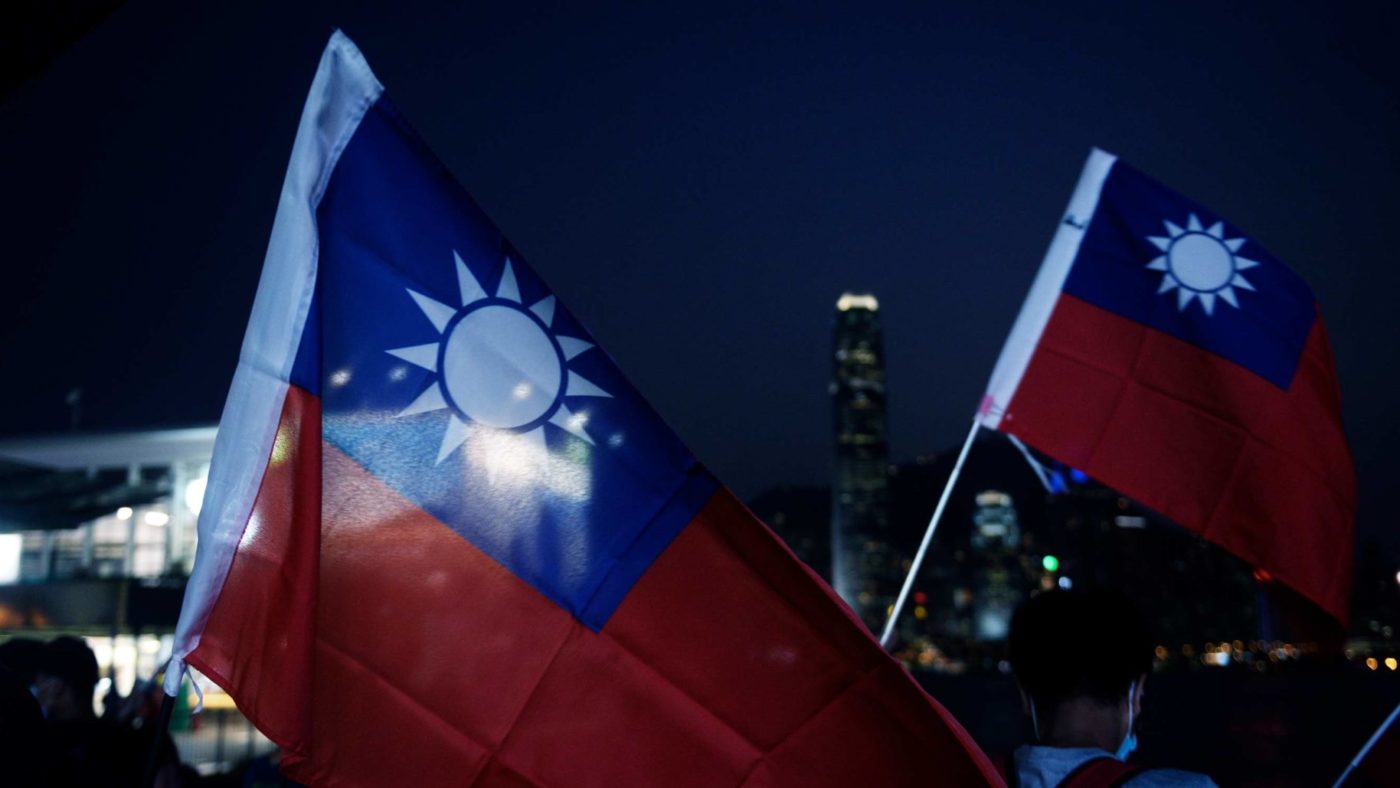Earlier this month, the Chinese Communist Party regime broke its promises, violated an international agreement and destroyed Hong Kong’s autonomy and freedoms. In so doing, they provoked international outrage – sanctions from the US, a generous immigration offer from Britain, Australia and Canada, and the suspension of extradition agreements with Hong Kong by several countries.
But it would be a mistake to think either that those measures are enough, or that Beijing’s takeover of Hong Kong is the end of the matter. Indeed, it is just the beginning.
If China is allowed to get away with destroying Hong Kong’s “one country, two systems” without paying the highest possible price, Taiwan will be next. And an attempt to annex Taiwan would be an act of war against the free world. If Hong Kong was, until now, the frontline in the fight for freedom, that frontline is now moving to Taipei, along with the many Hong Kong activists who have fled there.
The difference between Taiwan and Communist-occupied China is as stark as between North and South Korea or East and West Germany. Taiwan is a vibrant democracy, whose president has prioritised human rights and whose government has dealt admirably with Covid-19 – despite being excluded from the WHO at Beijing’s request.
Not only did Taiwan control the virus within its territory, thanks in part to its epidemiologist former vice-president, but it also provided assistance around the world with a generosity that contrasted starkly with Beijing’s approach. Taiwan donated high-quality equipment, while Beijing peddled duds or resold us equipment we had already donated to them, then tried to turn its actions into a propaganda victory.
In the case of the divided Korean peninsula, or divided Germany, the free world was never in any doubt where we stood. We were unambiguously behind the half of both those nations which represented democracy, economic freedom and an open society.
Yet when it comes to the dispute between mainland China and Taiwan, we have until now accepted a fudge. Officially most Western nations ‘recognise’ China and hold to a “one China policy”, while having friendly informal relations with Taipei. Even though Taiwan, with its 23 million people, functions in every sense as an independent country, with its own currency, immigration system and government – and a democratically elected one at that – we don’t recognise it as such. Indeed, only 15 countries do.
There have been valid reasons for this position and even I, as a friend of Taiwan, accepted the status quo – until now. But as the regime in Beijing becomes increasingly aggressive and expansionist, it is time for a rethink.
If Beijing breaches a United Nations-registered international treaty – the Sino-British Joint Declaration – regarding its promises to protect Hong Kong’s autonomy, why should we any longer respect its claims to sovereignty over Taiwan, which has been de facto independent for over 70 years?
Until recently, to even hint at such a position would have had me labelled a ‘secessionist’ radical. But last week, the former Speaker of Britain’s House of Lords, Baroness D’Souza, tabled an oral question for debate in Parliament asking the British government what diplomatic and practical assistance it was providing to Taiwan and what plans they have to recognise it as “an independent sovereign state”.
She pointed out that Xi Jinping has made it clear that he wants to apply ‘one country, two systems’ – the concept he has just dismantled in Hong Kong – to Taiwan, possibly as soon as the Chinese Communist Party’s 100th anniversary next year. She asked what “small but significant steps” could be taken, together with “other like-minded nations”, to “clarify and entrench Taiwan’s de facto independence”.
She was absolutely right to do so.
Even if we stop short of full recognition – and there may be good reasons for not wanting to provoke China – we should do more to shore up our friendship with Taiwan. We should also increase efforts to include Taiwan at G7 meetings, to lobby for Taiwan to join other multilateral bodies and to lift the current ban on Cabinet-level ministerial visits to Taiwan.
As we face an increasing freeze in our relations with Beijing, why not invite Taiwan’s recently re-elected President Tsai Ing-wen to visit the capitals of liberal democracies?
If we proceed with developing the alliance of democracies known as the “D-10”, why not invite one of Asia’s most dynamic democracies to be a member?
But we should also prepare for even more robust action. We must do nothing that precipitates military action, but we should get ready. We should transfer military assistance – software and hardware, intelligence, cyber warfare – to help Taiwan defend itself. And we should leave Beijing in no doubt that if they move against Taiwan with force, we will assemble a global coalition to defend the island. Force should be met with force.
In order to prevent a takeover of Taiwan, and a third world war, we must signal our intent to Beijing clearly. Let’s not repeat the trajectory of Sudetenland, Czechoslovakia and Poland – accompanied by naïve trust in false promises of “peace in our time” until almost too late. Let’s recognise that Taiwan – an open, democratic society, a free, dynamic economy and an increasingly key ally in pursuit of good governance – is our friend, and we must defend our friends. An attack on Taiwan is an attack on all democracies, and we must not let it happen.
Click here to subscribe to our daily briefing – the best pieces from CapX and across the web.
CapX depends on the generosity of its readers. If you value what we do, please consider making a donation.


